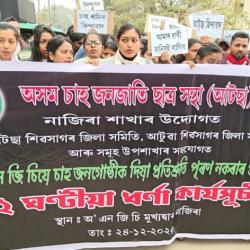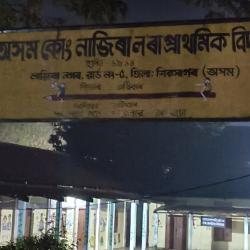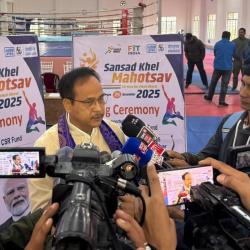There is a generation gap between the signing of Assam Accord on the Independence Day 1985 and the present generation has to face new challenges to compete with the world class people in all spheres of development. The young people are confused over the airing of old issues which have lasted for long 31 years in absence of any solution. The issues pertaining to the Accord have become irrelevant under the present circumstances. The Assam Accord issue is still haunting and confusing the present generation due to absence of a clear picture. The fate of the Accord is not known to the people in general. A few politicians and intellectuals are trying to raise the issues of the accord from time to time.
We have to go back in the history of agitation against the foreign nationals in the state which started long back in the year 1979. The All Assam Students Union (AASU) led the movement on the ground that a large number of foreign nationals’ name appeared in the voter lists and the government formed on foreigners votes was ‘ illegal’.. It was alleged that several thousand foreigners name appeared in the voter lists of Drrang district alone. The agitation continued for long six years which affected state badly crippling the education, trade and affecting all sections of the people in the state. However, the signing of Accord between the movement leaders and the Assam state government in presence of erstwhile Prime Minister Rajiv Gandhi brought a hope that the peace would return in the state.
According to Accord the movement leaders formed a regional political party, namely, Asom Gana Parishad (AGP). Immediately and after formation of the new party Assembly elections were declared without ‘‘revising the voter lists’’, which were the root cause of the movement. Surprisingly, the AGP came to power with overwhelming majority. The first term of the ‘young leaders’ ruling over the state administration was supposed to be their learning period. Frequent differences among the senior members of the party led to partition reflecting differences on many occasions. As a result the AGP lost the Assembly polls in 1991..The party had failed to make any significant progress in respect of the implementation of Assam Accord.
Now, power had gone to the Congress Party. The Congress Party rule passed its term of five years till 1996 as a ‘damage control measures’ blaming the earlier government of non-performance. The electorate of the state gave another chance to AGP which could not form the government of itself without the help of Left parties. The issues relating to Assam Accord were kept aside. The Congress Party rule under the dynamic leadership of former Chief Minister, Tarun Gogoi, for consecutive three terms from the year 2001 to mid- 2016 resulted in large number of corruptions and division in the party. Gogoi was confident of winning the race again but lost to BJP -AGP and BPF alliance. The Assam Accord is now getting partially a shape, but the hue and cry throughout the state continues. It is time to go ahead with future plans in the interest of development of employment opportunities for the new generation instead of repeating the history.
- Add new comment
- 27891 reads










Comments
All said and done the
Pages
Add new comment